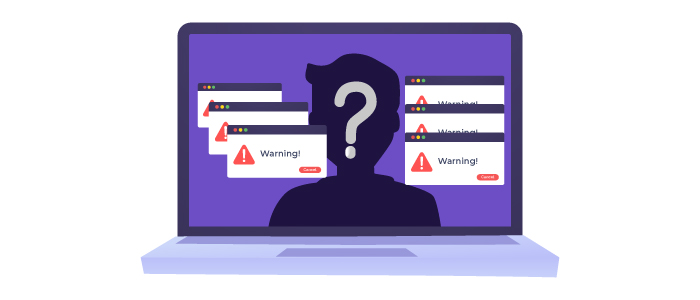Is Digital Marketing Legit? Debunking Myths About Digital Marketing and Its Effectiveness
Did you know that approximately 72% of marketing budgets go to digital marketing? It’s no wonder why since it is estimated that 60% of marketing will be digital by the end of 2024.
However, some businesses question the effectiveness and legitimacy of digital marketing, and the reasons are numerous.
Now, why is that? And is digital marketing legit?
As marketers, we have to always take advantage of what works at a certain moment. With the digital era progressing more and more, we are now relying on every channel possible to deliver our projects. Social media, email, and mobile each have advantages, and depending on the business we promote, they can contribute to reaching success in the long term.
But how do we manage situations when our clients’ perceptions of digital marketing’s effectiveness are highly uncertain? Most importantly, what makes them believe that digital marketing is a scam that will only waste their funds and never bring any advantages?
Well, this article will dive into the top scams in the digital marketing field, as well as the most popular myths that contribute to the negative side that has been created for this concept.
What Is Digital Marketing?

Digital marketing is a practice that involves promoting a business online through various channels and strategies.
Unlike some might think (yes, we’re already starting with the myths), digital marketing is not only about social media posts. And no, it’s not even solely relying on ads. Instead, digital marketing is a concept that reunites multiple strategies most of us include in our marketing efforts.
But what strategies are we talking about? What are the main types of digital marketing?
Content Marketing
Content marketing is a marketing approach that focuses on creating and delivering relevant, valuable, and consistent content to a certain audience suitable for the business promoted.
Content marketing should focus on providing useful content that relates to and aims to solve customers’ issues. Whether we’re talking about B2B (Business to Business) or B2C (Business to Consumer) marketing, content marketing should be part of any company’s approach, as long as it wants to build and maintain its audience.
And if you’re wondering why we included content marketing as the first type of digital marketing, it is because it should be part of most of the following concepts we will present.
SEO (Search Engine Optimization)
Search engine optimization is a group of practices that aim to improve a certain website’s performance and ranking among other competitors. Basically, SEO specialists optimize websites and content with the main purpose of ranking higher in SERPs (Search Engine Result Pages) on various browsers.
To have a better view of what SEO implies, HubSpot built a SEO step-by-step tutorial that shows at least a little bit of what a basic SEO strategy should include. However, remember that things are significantly more complex, or at least should be, if you want to build an effective SEO strategy to include in your bigger digital marketing strategy:
1. Find keywords;
2. Put keywords in the page title;
3. Put keywords in the page URL;
4. Put keywords in your meta description;
5. Put keywords in your H1 text;
6. Use keywords in the page’s content;
7. Build links to your website;
8. Monitor your rank (this will serve us well when we reach those myths we were talking about).
Social Media Marketing
Social media marketing (SMM) involves using various social platforms such as Facebook, Instagram, X (Twitter), LinkedIn, TikTok, and others to promote your products and engage with your target audience.
Social media marketing is not just about posting random content; it should include developing a detailed and relevant strategy, building a buyer persona, and constantly measuring your results in order to improve the strategy.
Email Marketing
Email marketing is still one of the most cost-effective digital marketing practices. By sending personalized, relevant emails to a segmented audience, businesses can generate new leads, promote their products, and maintain customer relationships.
PPC (Pay-per-Click) Marketing
PPC marketing involves paying for ads that appear on search engines and other platforms. Advertisers pay a fee each time one of their ads is clicked. This strategy can drive traffic to a website quickly and is measurable and controllable. For example, a new online clothing store might use Google Ads to target users searching for “summer dresses,” ensuring their ads appear at the top of the search results.
Top Digital Marketing Scams

Until now, you might have convinced yourself that digital marketing is pretty legit, right? And yet, somehow, bad-intentioned marketers manage to raise that question by promising some unrealistic things or using some questionable strategies.
Unrealistic Promises
One of the most popular and widely seen scams in digital marketing is the promise of instant success.
Some agencies or freelancers claim they can guarantee top rankings on Google or a massive increase in traffic within days.
In reality, digital marketing requires consistent effort, time, and strategic planning. SEO, for instance, can take months to show significant results due to the need for ongoing optimization and the time it takes for search engines to index changes.
Always pay attention to anyone who claims they can deliver overnight success, as these promises are often too good to be true.
Fake Reviews or Testimonials
Trust is crucial in digital marketing, and some marketers exploit this by generating fake reviews or testimonials.
Some might post fabricated reviews on Google, Yelp, or social media platforms to build a false sense of credibility, and this can mislead potential clients into believing they are hiring a reputable service.
It’s important to verify the authenticity of reviews by looking at third-party review sites and asking for references or case studies from previous clients. Real testimonials often include specific details and context that fake ones may often lack.
Useless Backlinks
We all know that backlinks are vital for SEO. However, not all backlinks are equal. Why is that?
Well, some companies offer to sell backlinks, often at a low price, claiming that they will boost a website’s ranking.
Such backlinks usually come from low-quality, irrelevant websites, which may do more harm than good. Search engines can penalize websites that do not optimize their pages in a fair way, so try to stay away from such practices.
Cheap, Fast, and Easy Leads
Generating leads is a key goal in digital marketing, but offers of cheap, fast, and easy leads are often risky for your business.
High-quality leads require a strategic approach, including targeted advertising, engaging content, and well-developed campaigns.
Companies that promise many leads in a short time often use methods like buying email lists or using bots, resulting in low engagement rates and fewer conversions.
Promising Specific Numbers of Sales or Conversions
Last, but definitely not least, we have the promise of a specific number of sales or conversions. It’s almost impossible to guarantee to a business that you will bring them 1,000 conversions. You can set this goal, of course, but not guarantee the achievement. Why?
Digital marketing involves many variables, including market conditions, competition, and consumer behavior, which makes it impossible to guarantee specific outcomes.
Fair marketers will provide realistic expectations and focus on measurable KPIs (Key Performance Indicators), such as click-through rates, engagement metrics, and conversion rates, without guaranteeing exact numbers. Instead, they will focus on doing anything in their power to reach the goals they have set with their clients.
Debunking the Top 5 Digital Marketing Myths

There are many myths that, when taken into consideration by some businesses, lead to the main question we are discussing: Is digital marketing legit?
Thus, here are 5 of the most popular digital marketing myths.
Content Is the First Priority
It should be no surprise for marketers and businesses alike that content is extremely important. Without relevant and reliable content, you cannot engage with your audience that easily.
However, content should not be the only priority in a successful digital marketing strategy.
Effective digital marketing involves a complex approach where the content should work with other strategies, such as SEO, social media engagement, and email marketing.
Take an article, for example. The content can be as bright as anyone would dream of, but it also needs proper SEO to rank well and reach a wider audience.
Focusing solely on content without considering other practices might limit its effectiveness.
Email Marketing Does Not Help
Email marketing got to a point where it is highly underestimated, but it remains one of the most effective strategies in digital marketing. However, it is effective when it is done right.
Personalized and targeted email marketing campaigns can bring new leads, shorten the sales funnel, and maintain customers closer to your business.
For example, an e-commerce website might see an increase in sales by sending personalized product recommendations based on past purchases and recent searches. It can increase the FOMO (Fear of Missing Out) in many clients.
Email marketing can also help businesses segment their audience and build their messages to meet specific customer needs and pain points, thus leading to higher engagement and potentially more conversions.
Digital Marketing Is Not Required for Physical Sales
Long gone are the days when businesses that have physical activity only and base their revenue on physical sales did not need an online presence.
Take local SEO, for instance. It can help businesses appear in search results for nearby customers. Positive reviews found online can convince potential customers to choose a specific local restaurant instead of another. Social media can help businesses promote their events and special offers, and the list can go on for so long.
High Traffic Means You Are Successful
Let’s give what is Caesar’s to Caesar – high traffic is a positive sign. Still, high traffic does not always equal success. You should also consider the quality of that traffic and its ability to convert into sales.
For example, a certain post on social media might become viral and attract many visitors (this is where high-quality content plays a vital role), but if those visitors are not part of a target audience for that business, the traffic spike will not result in significant business growth.
Businesses should find the right formula to use in order to attract the right audience and optimize their conversion funnel to turn visitors into loyal customers and, why not, advocates.
You Should Include Every Channel and Post on Every Social Media Platform
It’s a common misconception that more channels mean better results. In reality, spreading efforts to too many channels can reduce the effectiveness of a digital marketing strategy.
It’s crucial to identify the right platforms and channels for you, and this can be done by building your target audience first. Try to learn more about where your audience spends time and focus on those channels.
Let’s say you are a B2B company that is just getting started with its digital marketing strategy. Would you engage with your target audience on TikTok or on LinkedIn? We all know the answer to this question.
Quality and relevance are what you should always focus on, and choosing the platforms and channels wisely can help you spend your budget more effectively.
So, Is Digital Marketing Legit?

Let’s start with a short conclusion followed by some explanations: digital marketing is as legit as you make, help, and let it be.
The most important factor is to use digital marketing properly, and if you do this, it can lead to surprising growth, along with high-quality brand awareness, and an improved customer base. We believe that the key to success may be understanding how to work with this concept, staying away from fake promises, and not taking into consideration various myths you will always hear from others.
Thanks to the evolution of data analysis, digital marketing can provide extremely valuable insights and measurable results, and this allows businesses to optimize their strategies and campaigns even more to always be one step closer to their success.
Tools like Google Analytics, social media insights, and email marketing-specialized platforms offer detailed metrics on user engagement and behavior, campaign results and effectiveness, and ROI, and this can help marketers improve their approach to help their clients.
Such factors only contribute to proving that digital marketing is legit and is here to stay.
Key Takeaways
Digital marketing is a sum of numerous strategies and practices such as SEO (Search Engine Optimization), social media marketing, content marketing, email marketing, PPC (Pay-per-Click), and many more. Thanks to constant technological updates, digital marketing has become widely used and pretty effective, especially when done right.
Businesses should be aware of various unrealistic promises and offers some bad-intentioned marketers provide, as they can hardly contribute to a company’s success.
There are many myths in the digital marketing space, but you should always remember that not all of them are true. In fact, many of them aren’t.
Always keep in mind that a good digital marketing strategy focuses on multiple practices, channels, and platforms, but never too many of them. Build your buyer persona and use it to learn what would work best in order to reach your target audience.
Now, let’s finish with a rule all marketers should keep in mind, no matter their clients, goals, and practices: always focus on quality over quantity.